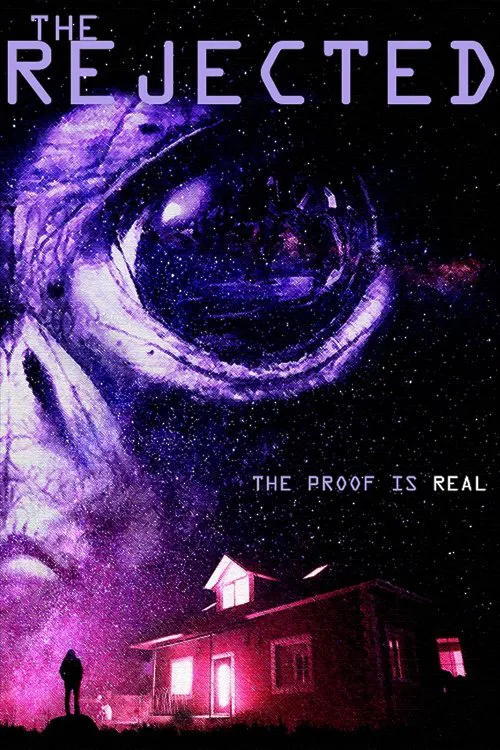The Rejected

Plot
The Rejected begins with a series of recovered footage fragments, pieced together by an unknown party that sets the stage for a chilling true-story-like documentary about a UFO sighting and possible abduction. These grainy, self-filmed sequences introduce us to the subject at the center of this mysterious case: a young couple named Michael and Laura, who in the summer of 1993, captured the most astonishing footage of their lives - an encounter with what they can only describe as an extraterrestrial spacecraft. Throughout the recovered footage, we meet Michael and Laura on a camping trip with friends in the Arizona desert, a trip that's initially intended to be a carefree adventure. However, their fun soon takes a drastic turn when they stumble upon a glowing, disk-shaped object hovering above the horizon. At first, they dismiss it as a strange weather anomaly, but as their cameras and cellphones capture more details of this unworldly phenomenon, fear and curiosity take over. Michael and Laura decide to track the phenomenon, and the footage they capture over the next several hours is heart-poundingly intense. They record their experiences on audio, describing in vivid detail the eerie, pulsing sounds and the eerie green lights emanating from the object as it moves closer. Their audio logs capture the raw emotion and confusion of being at the center of this unfathomable event. The footage cuts to the evening of the encounter when it becomes apparent that something inexplicable has occurred. Laura awakens disoriented, with no recollection of the past several hours. As she struggles to piece together what happened, she discovers a series of bizarre marks and scars on her skin and clothing that defy explanation. The subsequent sections of the recovered footage delve deeper into the aftermath of the encounter. Laura's medical records and interviews with their friends reveal symptoms consistent with traumatic shock, but with an otherworldly twist. Descriptions of strange visions, vivid dreams, and a general feeling of disorientation suggest that something far more sinister than mere psychological trauma might be at play. At the heart of the mystery is Laura's inexplicable memory gap, which spans several hours. Were Michael and Laura abducted by beings from another world, as they claim, or is the truth something far more terrestrial, like a deliberate ruse to dupe a gullible audience? As the recovered footage reaches its climax, doubts begin to creep in, and the film's tone starts to shift from one of genuine mystery to a subtle seed of skepticism. Footage of Michael being grilled by investigators raises questions about his motives and potential involvement in a conspiracy. A series of cryptic phone calls from unknown numbers adds to the growing sense that their UFO story is perhaps more fabrication than fact. One question becomes increasingly important: What exactly constitutes evidence of alien life? The Rejected's fragmented footage, self-proclaimed alien encounters, and bizarre marks on Laura's skin can be interpreted as a multitude of things - a genuine experience or a masterfully crafted hoax. By refusing to provide clear answers or definitive explanations, the documentary blurs the lines between fact and fiction, challenging viewers to make up their own minds. In a cinematic world replete with fabricated storylines and manipulated evidence, it's not hard to imagine the possibility that The Rejected's UFO footage might be another carefully crafted ruse. One of the most intriguing aspects of this documentary is its ambiguous nature. Some might argue that the film is simply presenting us with a true story of alien encounter while others could be misled into believing that the events depicted might never have happened. While that ambiguity is part of what makes The Rejected so fascinating, it's also what makes it so unsettling - leaving viewers torn between genuine wonder and a healthy dose of skepticism. The Rejected leaves us to wonder if the truth we're searching for is indeed out there, but also, perhaps more crucially, if we should ever truly believe what's presented to us as evidence.
Reviews
Recommendations



